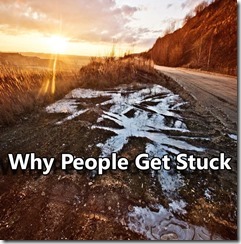 Jesus declares, I will define who we are. “I will make you….” (Matthew 4:18-22).
Jesus declares, I will define who we are. “I will make you….” (Matthew 4:18-22).
When we watch the life of the Apostle Peter the more he understands who God is, the more he understands who he is.
Knowing God and knowing self are therefore interdependent” (The Gift of Being Yourself: The Sacred Call to Self-Discovery By David Benner.)
For Peter to find salvation and wholeness, he will have to walk away from the nets. However doing so is not an easy task as the nets are what have defined Peter for so long. Peter seems to have been a faithful Jew, a hard worker, and a family man. He most likely did not have an easy life, but things were average for him. His identity as a business man was as secure as it could be. Then Jesus challenges him to drop that old identity, his net, and follow him.
As we follow Jesus he is going to lead us to see our spiritual nakedness (Gen3), our true selves and our need for him.
In Luke 5:1-11, Peter’s response to Jesus is to recognize his need for Jesus and then challenges Peter’s identity. It was after raising the fish-filled nets up out of the water, that Peter runs to Jesus and shares that he is a sinner. He understands this about himself. However, as Jesus reveals more of himself to Peter, Peter moves from knowledge to experience. God wants us to be aware of our need for divine help. He wants to replace the fig leaves we grab to cover our nakedness (Gen.3:21) and give us real wholeness in our life. To do that we must see ourselves as Jesus see us.
When Jesus says to Peter, “I will make you….” (Matthew 4:18-22), Jesus declares to Peter, I will define who you are.
For us today the question becomes: will we cling to the old nets? Like Peter, will we let Jesus define us or will we let the things we do, or do not do, with our hands define us?
At times we place our self-value in what we have, what we can do and what others think of us. Yet Jesus calls us to walk away from that and drop the nets. Let him define us.
Jesus calls us to an identity that is grounded in our relationship to God the Father. Jesus came to restore our relationship with God the Father. It is as we understand who God is and what Jesus has done that we understand who we are and what we can do.
To go there we must step out of the boat and let go of things we have grabbed a hold of to define us and be honest with ourselves.
What nets do you hold on to that secure you in a false self?
Peter not only understands and comes to know God deeper but he begins to understand himself better, his true self. True self is only found in seeking and accepting God. There, Jesus declares, wholeness is found.




